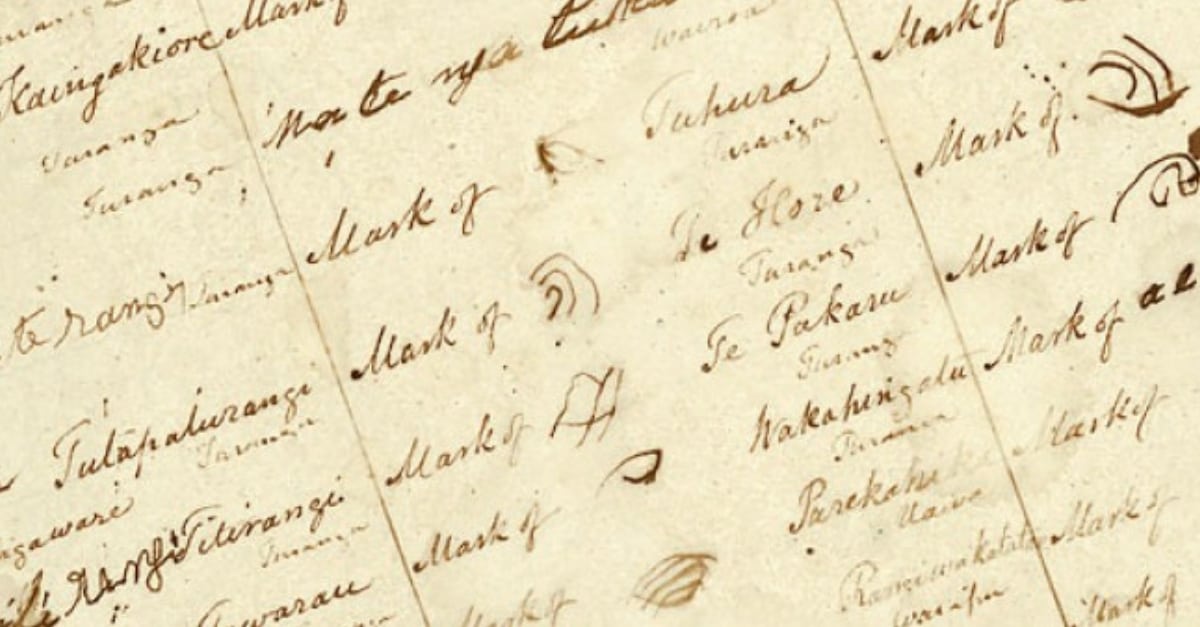Recent action by governments in Victoria, the Northern Territory and Western Australia demonstrates that Australia is taking steps towards the country’s first treaty or treaties with Aboriginal people and Torres Strait Islanders. This would change Australia’s unique status as the only Commonwealth government that is yet to establish a treaty with its indigenous people. We’ve written this blog due to the current momentum in Australia, our organisational privilege of working with a range of Aboriginal organisation and Sparkie Claire Wild’s own experience living in New Zealand (Aotearoa). In it, Claire shares some reflections on how Aotearoa’s treaty experience could inform how we progress this important conversation in Australia.
As Spark’s resident Kiwi, I thought I’d provide one perspective on Aotearoa’s treaty, the Treaty of Waitangi, or Te Tiriti o Waitangi. I’m proud to be a Kiwi, but am not so proud of the way my Pākehā ancestors behaved when they landed on our beautiful shores in the mid-1800s.
While it was not implemented without its challenges, Aotearoa’s Treaty has some pretty strong lessons for Australia.
Aotearoa’s Treaty
One of the key issues with the Te Tiriti is that it meant very different things to its British and Māori signatories. There are two versions of Te Tiriti: one in English and one in te reo Māori. The Māori and English translations do not match up, due to mistranslations around the concept of sovereignty – which had no direct Māori translation at the time.
According to the English translation, Māori were to hand over complete sovereignty to the British Crown, while retaining possession of their lands. However, Māori believed that they were giving up kāwanagatanga (governorship) over their lands, while retaining tino rangatiratanga (self-determination).
This may seem like semantics, but the British settlers’ inability to understand or articulate the concept of tino rangatiratanga has had devastating flow on effects for the rights and wellbeing of Māori in New Zealand. Tino rangatiratanga is central to fostering economic development for Māori; almost 180 years after the Te Tiriti was signed, the violation of this right continues to reverberate.
It’s a well-established principle in international law that indigenous translations gain precedent in resolving conflict between different versions of a treaty. Māori should have retained tino rangatiratanga, but events following Aotearoa’s Treaty signing have led to vast quantities of Māori land and resources being stolen or illegally confiscated. Today, less than 6 percent of Aotearoa remains as Māori land.
What does this mean for Australia?
If and how an inclusive treaty could be established in Australia is a complex and contested conversation.
If we can learn anything from Aotearoa, it’s the importance of embracing the differences you can’t understand yourself. For Aotearoa, it was a few words that meant very different things to different people. Aotearoa’s British settlers made the mistake of trying to fit the Māori concept of self-determination into the British concept of sovereignty. This was like trying to fit a square peg into a round hole.
In many ways, Australia faces a similar situation to Aotearoa – but with the benefit of hindsight, we can learn from our neighbours across the ditch. Australian society has evolved into a system of diverse cultural viewpoints that are equally valid and sometimes at odds. Creating constructive and inclusive treaty conversations within this complex system will require all Australians to understand and celebrate perspectives that are different to our own – even those we can’t articulate in our native language.
What do you think about this article and the prospect of an Aboriginal treaty or treaties in Australia? Do you have personal or professional experience of treaty in New Zealand or another country or would you just like to continue this important conversation? We’d love to hear your views on this topic so please reach out to Claire and the rest of the Spark team at info@sparkstrategy.com.au.
https://nzhistory.govt.nz/politics/treaty/read-the-Treaty/differences-between-the-texts
https://thespinoff.co.nz/atea/06-02-2018/the-treaty-of-waitangi-granted-us-tino-rangatiratanga-but-what-is-it/
https://maorilandcourt.govt.nz/assets/Documents/Publications/MLC-2011-May-Judges-Corner-Isaac-CJ.pdf


0 Comments